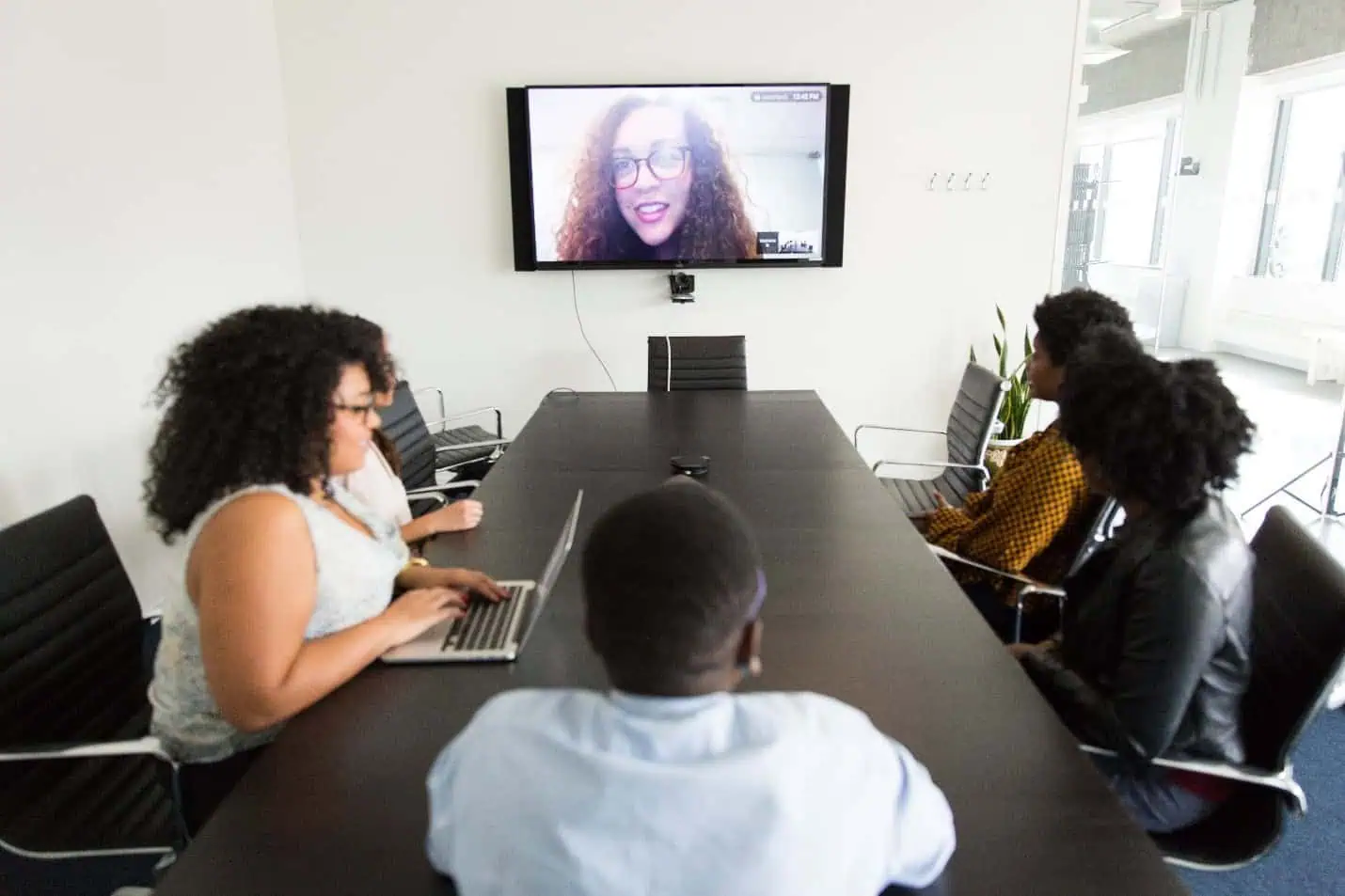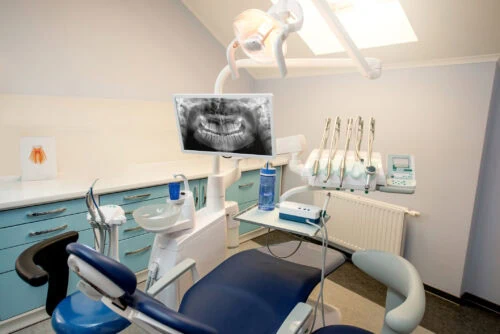Stepping out of an interview, you might find yourself wondering about your performance and the likelihood of receiving a job offer. This guide is designed to help entry-level job seekers like you interpret the signs you will get the job after an interview. From understanding subtle cues in body language to recognizing the significance of specific questions and feedback, this guide provides a comprehensive overview of post-interview indicators. Knowing what to look for can unscramble the hiring process and boost your confidence, giving you a better sense of where you stand. Let’s explore the key signs that suggest you are on the right track to securing the job after the interview.
Key Indicators You Might Get the Job
After an interview, it’s natural to analyze each moment. Some signs can suggest you might land the job. Here are a few signs you will get the job after the interview:
- Quick Response: If the interviewers return to you quickly, it’s a positive sign. A prompt reply typically means they’re eager to move forward.
- Long Interview Duration: A longer-than-scheduled interview is a good sign. It shows genuine interest in learning more about you.
- Detailed Discussions about Roles and Responsibilities: When discussions shift from generalized questions to specific duties, it often means serious consideration. If they delve into daily tasks and company expectations, they likely see you in the role.
- Salary and Benefits Talk: If the conversation includes salary, benefits, or other compensation, it’s an indicative sign that they are considering economically integrating you into their system.
- Future-oriented Questions: Questions about long-term projects or visions are a clue. They might be envisioning you as part of their future. Also, when they ask about your future plans, they hint they’re considering a long-term relationship.
- Invitation for a Second Interview: Being invited back for another round of interviews clearly shows their interest. It provides another opportunity to impress and align your goals with the company’s.
While these signs are promising, they’re not guarantees. Every company has its unique hiring process. However, seeing several of these signs can give you a good clue about your standing. For more insights and details on what to consider after your interview, explore the importance of understanding cultural diversity in career building.
Positive Feedback During the Interview
Paying close attention to the interviewer’s comments can provide signs you will get the job after the interview and clues about your performance and likelihood of getting the job.
- Compliments on Your Experience and Skills: It’s a strong indicator when the interviewer openly praises your qualifications or past job successes. Compliments like “Your experience is exactly what we need” or “You’d be a perfect fit” are particularly promising.
- Confirmation of Your Understanding: If the interviewer nods and agrees with your answers, it shows you are on the right track. Positive affirmations such as “That’s a great point” or “I agree” suggest alignment with the company’s vision.
- Revealing Next Steps: If they discuss the next stages in the hiring process without prompting, this indicates transparency and interest. For example, mentioning background checks or referencing future meetings means they are considering you seriously.
- Enthusiastic Tone: An interviewer’s tone can reveal a lot. It signals interest if they sound enthusiastic and engage deeply in the conversation. On the other hand, a flat or disengaged tone might suggest the opposite.
Understanding these subtle cues can give you an edge in assessing your likelihood of moving forward in the process. Moreover, learning about nonverbal communication can also help you interpret interviewer cues correctly.
Recruiter’s Body Language
During the interview, the recruiter’s non-verbal cues can tell you a lot about your chances of getting the job.
- Maintaining Eye Contact: Consistent eye contact often means the recruiter is engaged and interested in what you’re saying.
- Smiling and Nodding: Frequent smiling and nodding show approval and comfort. These are great signs during an interview.
- Forward Lean: If the recruiter leans forward while you speak, it indicates they are paying attention and value your responses.
- Mirroring: Mirroring your body language is a subtle sign of rapport-building, suggesting an excellent cultural and personal fit.
Observing these signs can give you clues about where you stand. Understanding diverse communication styles can enhance your ability to interpret such cues accurately. Additionally, enhancing your knowledge of body language basics might also prove useful in your next interview.
Post-Interview Communication
How an employer communicates after your interview can offer significant insights into your chances of getting the job.
- Personalized Email Follow-ups: Receiving a personalized email, rather than a generic response, suggests they are seriously considering you.
- Clarity About the Process: If they provide clear, specific information about the next steps, it shows transparency and continued interest in your application.
- Request for Additional Information: When an employer asks for more references or further documentation, it usually means they are closer to making a decision that could involve you.
- Questions About Availability: This is often a very positive sign if they inquire about your availability for job start dates or upcoming tasks.
Understanding these nuances can significantly influence your response and preparation for potential next steps. Observing how a company communicates with you after the interview is crucial. It’s also helpful to check on consistent practices in hiring processes.
The Employer’s Timeline
Understanding the timeline your potential employer communicates can give significant clues about your job prospects.
- Immediate Timelines: If they mention needing to fill the position urgently, your chances might be higher if you’re a good fit.
- Specific Dates: When explicit dates for decisions are shared, it shows the process is structured and nearing its end.
- Follow-up Meetings Scheduled: Setting a date for a follow-up or second interview often signals strong interest in your candidacy.
These timelines are essential in gauging the pace at which a decision might be reached. Moreover, learning how to anticipate or respond to different timelines can be crucial.
Meeting the Team
Being invited to meet the team can be a highly positive indicator in your job interview process.
- Introduction to Key Team Members: If you’re introduced to important stakeholders, it signifies they are considering how you’d fit into the team.
- Office Tour: A tour of where you would work, especially if potential team members conduct it, indicates strong interest.
- Team Interaction: Observe how team members interact with you. Warm receptions and engaging discussions hint they see you as a good match.
These experiences help you gauge the company culture and how well you might integrate with the team. Additionally, understanding the cultural dynamics of a workplace can further prepare you for what to expect in different team environments.
Signs of Cultural Fit
Recognizing signs that you align well with a company’s culture can be critical in assessing your job prospects.
- Shared Values and Goals: It’s a good sign when interviewers highlight aspects of the company’s mission or values that resonate with your own.
- Informal Chat: Casual conversations about non-work topics can indicate that the team feels comfortable with you and envisions you as a fit.
- Interest in Your Personal Growth: When a company expresses interest in your long-term growth and development, it’s a sign they are considering investing in you.
Understanding a company’s culture and how you fit into it is vital in the hiring process. For deeper insight into managing cultural diversity in the workplace, see Understanding Latino Community Diversity. Learning about cultural norms can also be essential, so consider exploring resources like country reports on human rights practices to understand global workplace environments better.
Signs You Will Not Get the Job After an Interview
Despite your best efforts, most likely, you will not get every single job you interview for. Sometimes, those signs are obvious right away. Here are a few:
- No Response: You didn’t hear back by the deadline.
- Being Unprepared: You couldn’t answer some interview questions.
- Short Interview: The interview was cut significantly short for any reason.
- Interviewer’s Disinterest: The interviewer seemed disinterested.
- You’re Unqualified: You didn’t have the skills and experience for the role.
Unfortunately, no matter how hard you try, another candidate might just be a better fit. Your best effort is sometimes enough, so stay persistent and positive!
FAQs
As we discuss the signs you will get the job after an interview, here are some frequently asked questions to assist you further.
What if I don’t receive any post-interview communication?
It’s advisable to follow up. Not hearing back doesn’t necessarily mean you haven’t been successful; processes can vary.
How long should I wait to follow up after an interview?
Typically, waiting a week is appropriate. It shows patience while still expressing your interest.
Can multiple interviews diminish my chances?
No, multiple interviews often mean the employer is seriously considering you but needs more input before a final decision.
Should I interpret a quick rejection as a bad sign for future applications?
Not necessarily. It could simply mean that another candidate fits the specific role better. It can be a little uncomfortable but always seek feedback.
Conclusion
Recognizing the signs you will get the job after an interview can significantly enhance your job-search strategy. By understanding critical indicators like detailed feedback, body language, post-interview communications, and cultural fit, you can better gauge your chances and prepare for future opportunities. As you continue on your career journey, remember these signs and use them to refine your approach. Each interview is a learning experience, increasing your confidence and prowess in navigating job hunting websites and job opportunities.
For more resources and support for your career development, consider joining Diversity Employment and upload your resume today! Together, we can build a thriving professional future based on diversity, inclusivity, and mutual success.




